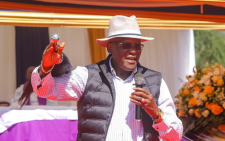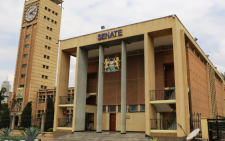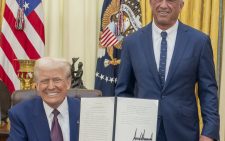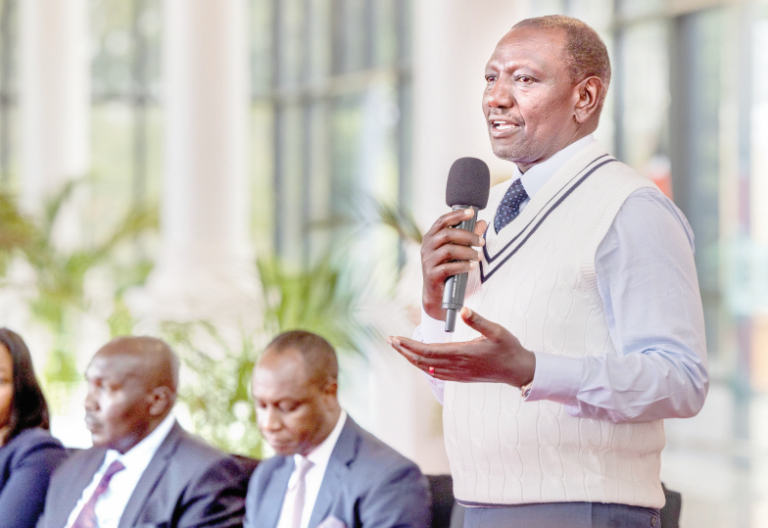Will Biden live up to Kenya-US bilateral talks?
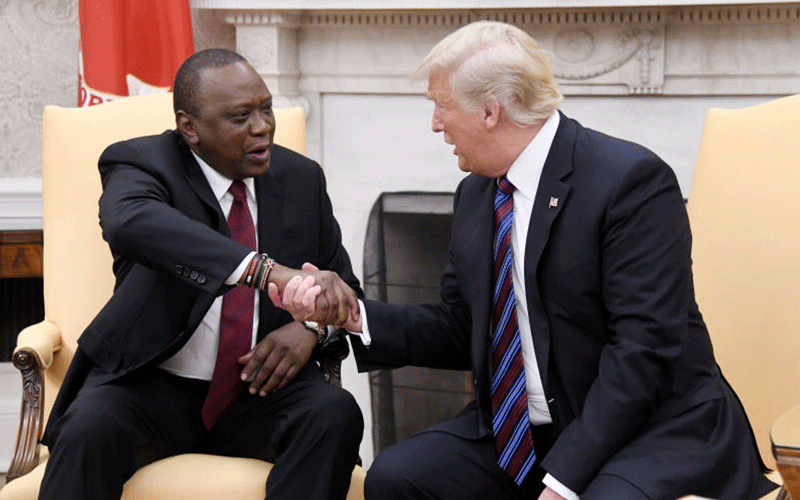
Lewis Njoka @LewisNjoka
The uncertainty over the presidency in United States sticks out like a sore thump in ongoing bilateral trade negotiations between Nairobi and Washington, after President Donald Trump lost to Joe Biden in last week’s elections.
While the Trump administration was keen to conclude a Free Trade Agreement (FTA) between Kenya and the US, it is not yet clear whether a Biden White House would share similar interest, despite the fact that the latter is being touted as being pro-Africa.
Opinion abounds that the Biden administration could, for instance, choose to call off the bilateral talks with Nairobi and instead extend the African Growth and Opportunity Act (Agoa) for the third time when it comes to an end in 2025, or decide to tweak the unfolding deal.
The new administration could also decide to adopt a new way of trading with Kenya and Africa altogether.
Whichever way, however, time of the essence, according to Kenya’s Ministry of Foreign Affairs officials.
Kicked off
In August, Industrialisation Cabinet Secretary Betty Maina warned that the talks could take up to two years to conclude, meaning that if the American courts do not overturn Biden’s victory, the fate of the trade deal lies with his administration.
Negotiations for the deal, announced in February when President Uhuru Kenyatta visited the US and held talks with President Trump, are widely viewed as an attempt by the current administration to counter Chinese influence on the African continent.
Kenya’s would be the first FTA between the US and a sub-Saharan Africa country after another one with Morocco which came into force in 2006. The talks, which formally kicked off on July 8, resumed in August after stalling for several weeks because of the Covid-19 related concerns.
“We are currently undertaking the first round. Negotiations take two years or more. No negotiation takes 30 days,” the CS told the Senate committee on Tourism, Trade and Industrialisation in August.
Moses Ikiara, the managing director of the Kenya Investment Authority and a member of the negotiating team, says the Biden administration is highly unlikely to end the FTA talks since they had already been approved by the US Congress.
“My take is that the negotiations will continue. The whole world now recognises Africa as the next frontier for business.
I would expect the new regime to see value in having trade relationships in Africa,” he said.
Disinterested in Africa
“The Congress is the one that gives mandate to negotiate. The go-ahead to negotiate with Kenya, which is being viewed as a model that the US will use to develop relationships in Africa, was given by Congress and Congress’s term does not end when there is a new President.”
The negotiations are almost at the end of round two, a preliminary stage, according to Ikiara.
Peter Kagwanja, the chief executive of Africa Policy Institute, observes that although Trump’s administration was largely disinterested in Africa, Kenya-US trade and investment reached an all-time high in the final years of the Trump presidency, something he is not sure the Biden administration will match.
“Certainly, Biden will be sworn in as America’s 46th President on January 20, 2021. But the fate of agreements and commitments made to deepen Kenya-US relations under Trump remain uncertain,” he said.
Speaking to the People Daily, American Chamber of Commerce chief executive officer Maxwell Okello says that they remain bullish about the ongoing talks and anticipate that change in regime will not disrupt proceedings or put a stop to the talks.
“We remain very hopeful that we won’t have a long distraction. This has the support of Congress and there is no indication that it will be impacted negatively. We also believe that this transcends administrations,” he said.
The Kenya-US trade rose to Sh120.1 billion ($1.1 billion) in 2019, up 4.9 per cent compared to 2018. Kenya’s exports to America under Agoa rose by 25.8 per cent in 2018, boosting employment in the textile sector by 5.1 per cent.
Currently, Kenya is one of Agoa’s top five exporters to the US, mostly selling apparel, nuts, coffee, and tea. On the other hand, it imports American aircraft, machinery, agricultural products, and plastics.
In 2018, Kenya imported goods worth a total of Sh66.6 billion ($644 million) from the US, making it America’s 98th largest goods trading partner.
That year, US was Kenya’s third largest trading partner with coffee, titanium ore and textiles accounting for 79 per cent of the country’s total exports to America under the duty-free trade pact, Agoa.
Failure by the incoming Biden administration to carry on with the deal could see Kenya lose out on many benefits the agreement promises.
While Agoa gives tariff-free access to the US for 6,500 products, the new free trade agreement is expected to allow Kenya to send more goods to the American market.
It is also expected to allow Kenya to exclusively export some products which the Agoa agreement doesn’t provide for.
Through the bilateral agreement, Kenya hopes to attract American agricultural companies to invest in the country.
According to Uhuru, Kenya aims to conclude the FTA with the US ahead of the expiry of the Agoa arrangement in 2025.
Addressing a virtual leaders’ forum on US-Africa trade convened by the Corporate Council on Africa in June, Uhuru said Kenya was keen on the new agreement as it would create jobs and protect the country’s industrial and agricultural sectors.
Local industries
“We expect that the FTA will lead to massive inflow of Foreign Direct Investment into Kenya and the rest of Africa, which will in turn catalyse linkages in supply value chains across the wider African region,” the President said.
The Kenya-US deal will serve as a template that will inform future negotiations between the US and African countries, according to Uhuru.
However, the deal has attracted both support and criticism from local and regional trading partners.
The Kenya Private Sector Alliance chairman Nicholas Nesbitt, has on a number of occasions expressed support for the FTA terming it good for the business community and the country as a whole.
Speaking during a leaders’ forum, Nesbitt said the arrangement will give Kenyan manufacturers and agro-processors access to the American market, enable American companies to set up factories in Kenya, and attract non-US citizens to set up factories in Kenya, with an aim to export to US.
“It gives us a lot of opportunities to go to a big market with very attractive tariffs and in so doing, it gives us preferential standards which will be very helpful.
It’s going to create jobs, attract Foreign Direct Investment and most importantly diversify our economy,” Nesbitt said.
Opponents of the deal, however, say it will kill local industries by granting the US unrestricted access to the Kenyan market in key sectors such as agriculture, manufacturing, pharmaceuticals and financial services.
According to the United States Census Bureau, the balance of trade between Kenya and the US for the four months from January to April this year stands at Sh6.7 billion ($62.5 million), an indication that the US could reap more from the arrangement than Kenya whose economy is much smaller.
In September the United Nations Conference on Trade and Development Secretary Mukhisa Kituyi, cautioned Kenya against the deal, saying the agreement was US.
Fullest potential
He observed that despite Kenya having the opportunity to export thousands of goods to the US under Agoa, it only exported textiles and a few other goods.
“It (Kenya) should address production and not market,” Dr Kituyi said.
In March, two lawyers, Christopher Ayieko and Emily Osiemo, filed a case at the East African Court of Justice seeking to have the agreement revoked on the grounds that it violated the East African Community (EAC) treaty and protocols.
The decision by Kenya to enter into the discussions alone has been met with criticism from some members of the African Continental FreeTrade Area (AfCTFA) and the EAC, who see the decision as being contrary to regional agreements.
Uhuru has sought to allay these fears, saying the Kenya-US deal would serve as a template that would inform future negotiations between the US and African countries.
“We will be trailblazers and hope other countries follow suit,” Uhuru said during a leaders’ forum.
“What we did agree is that all negotiations will come into play as soon ast the (AfCTFA) comes into effect, so that’s July, the first week of July, July 7th, in particular.”
On July 8, Kenya and the US, in a joint statement reaffirmed their support for regional blocs such as AfCTFA, saying the bilateral agreement would only complement these efforts.
“We believe this agreement with Kenya will complement Africa’s regional integration efforts, including in the EAC and the landmark AfCFTA, and the US pledges its continued support to help the AfCFTA achieve its fullest potential,” said US Trade Representative Robert Lighthizer.


